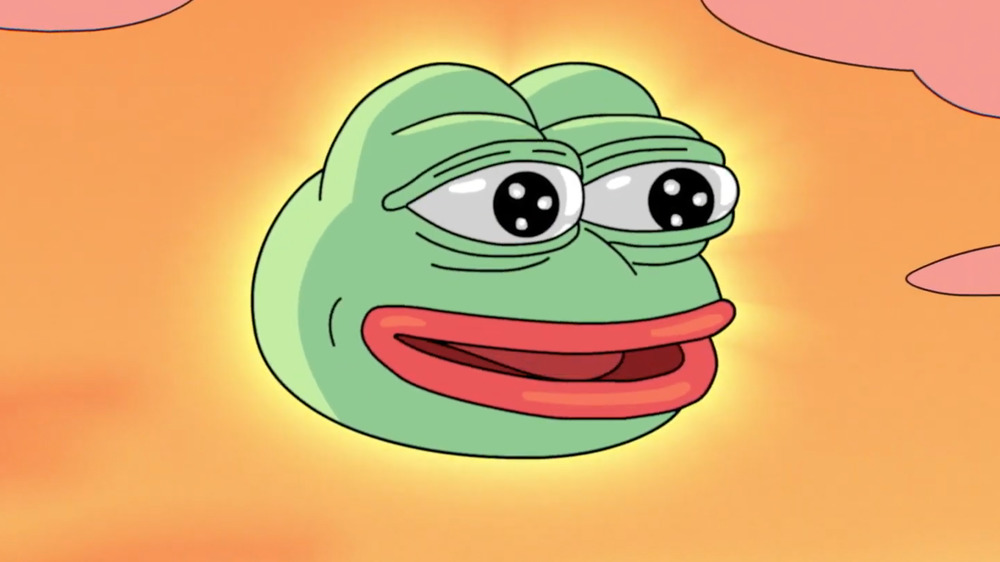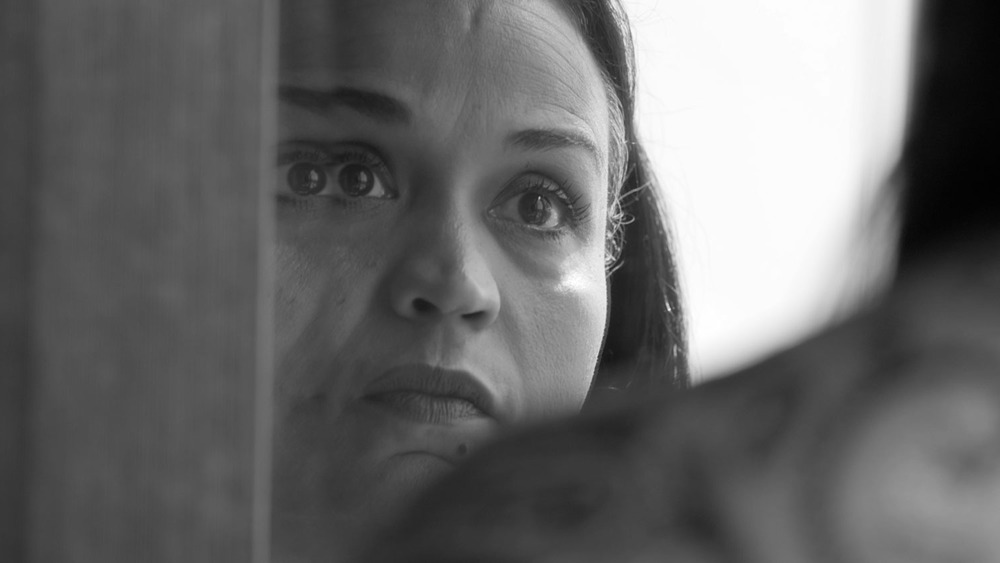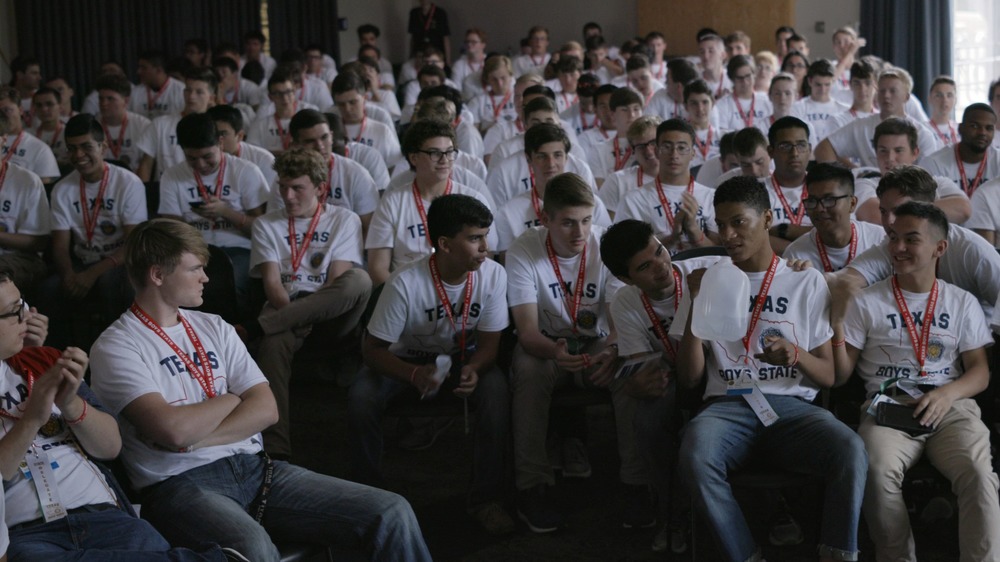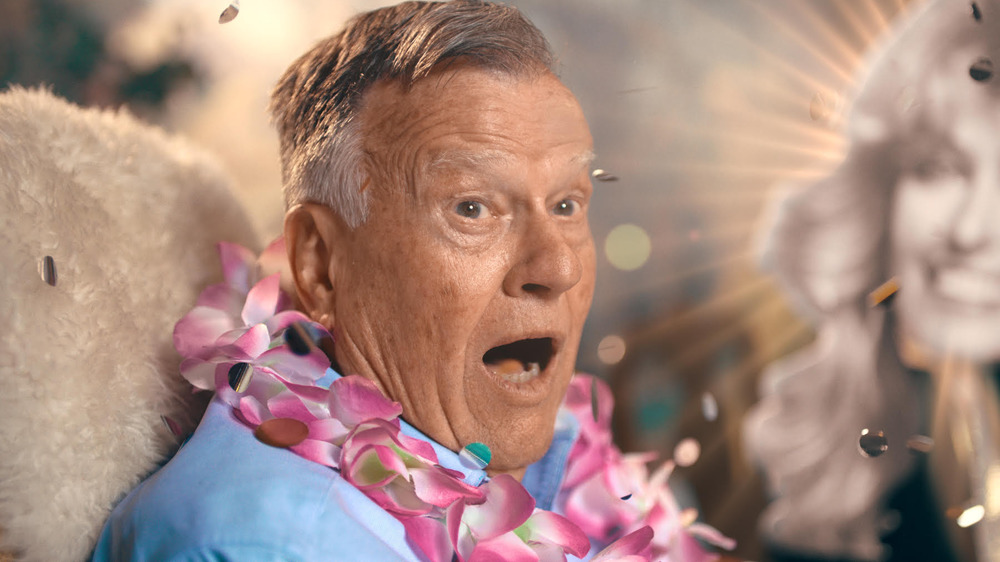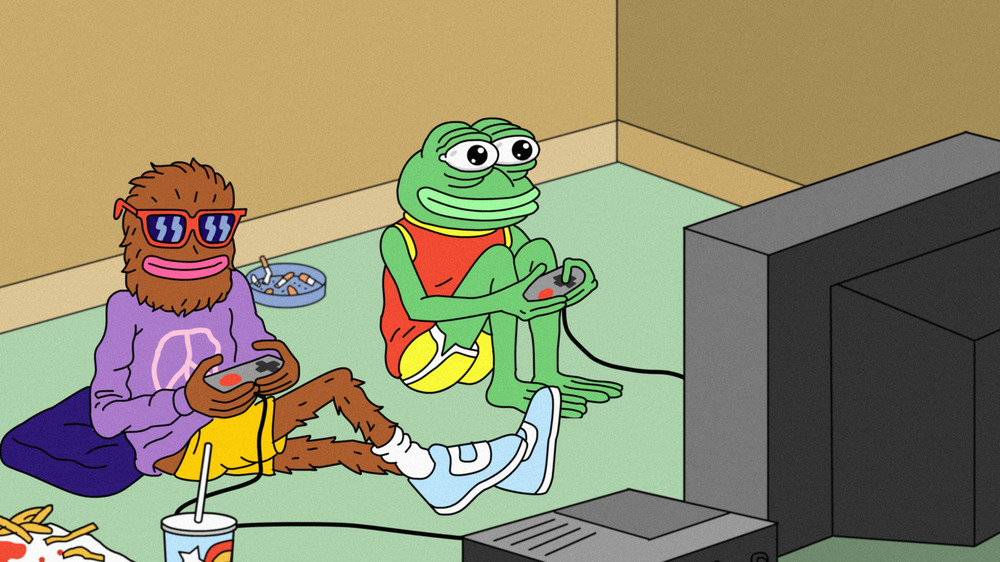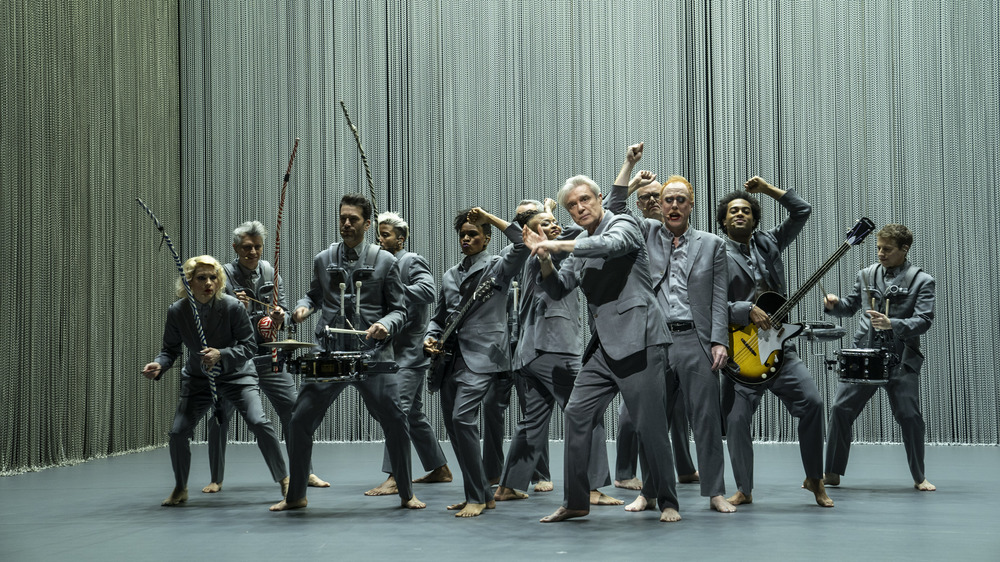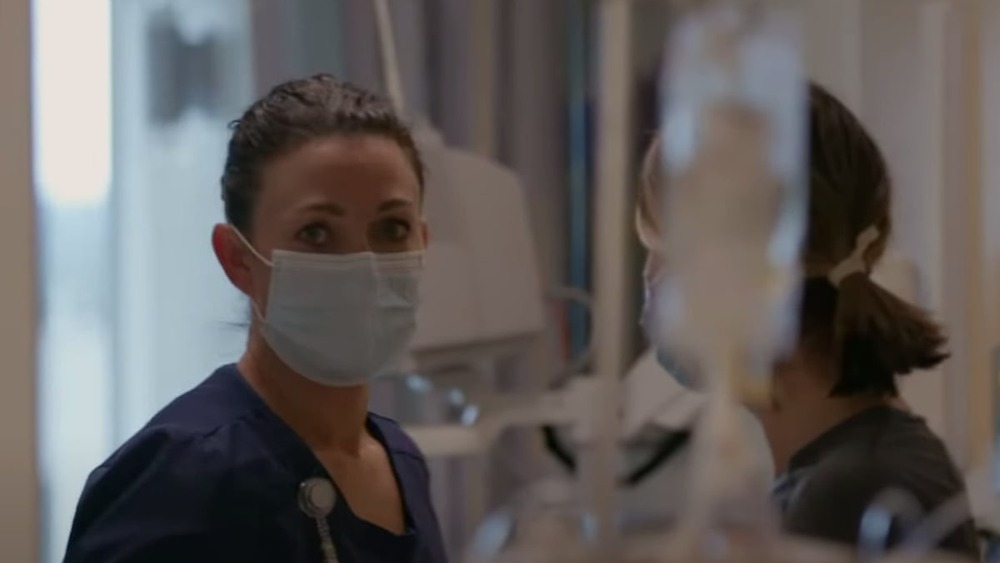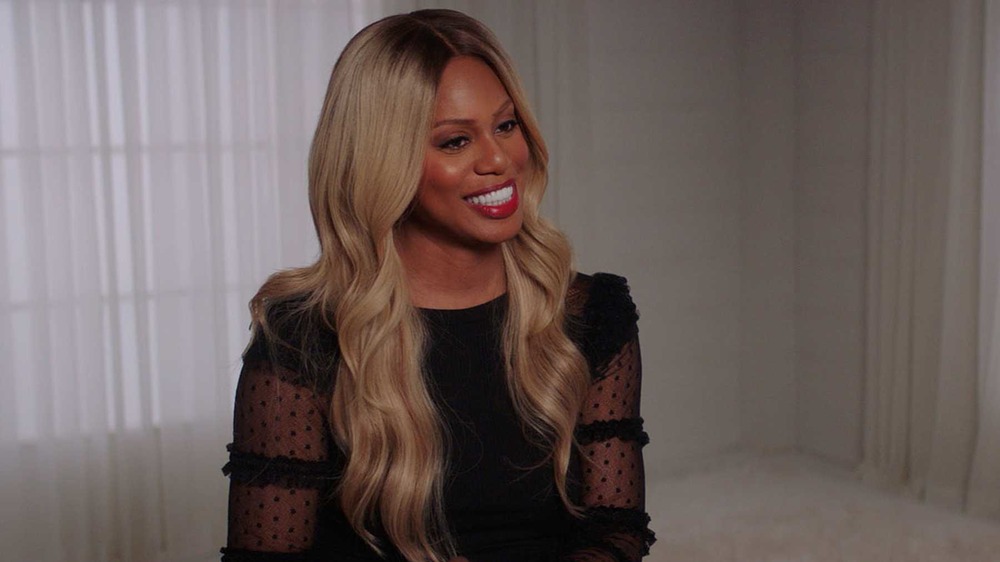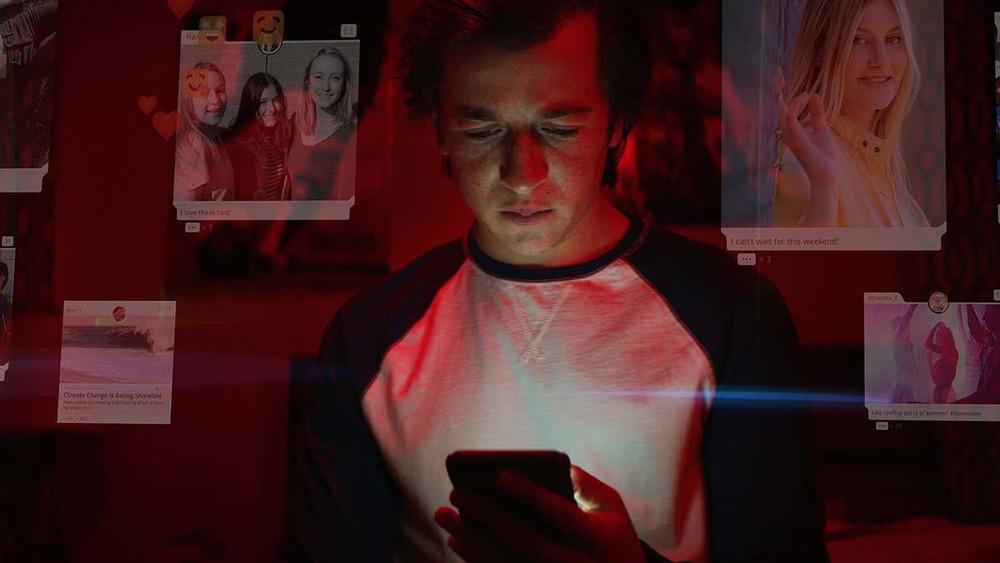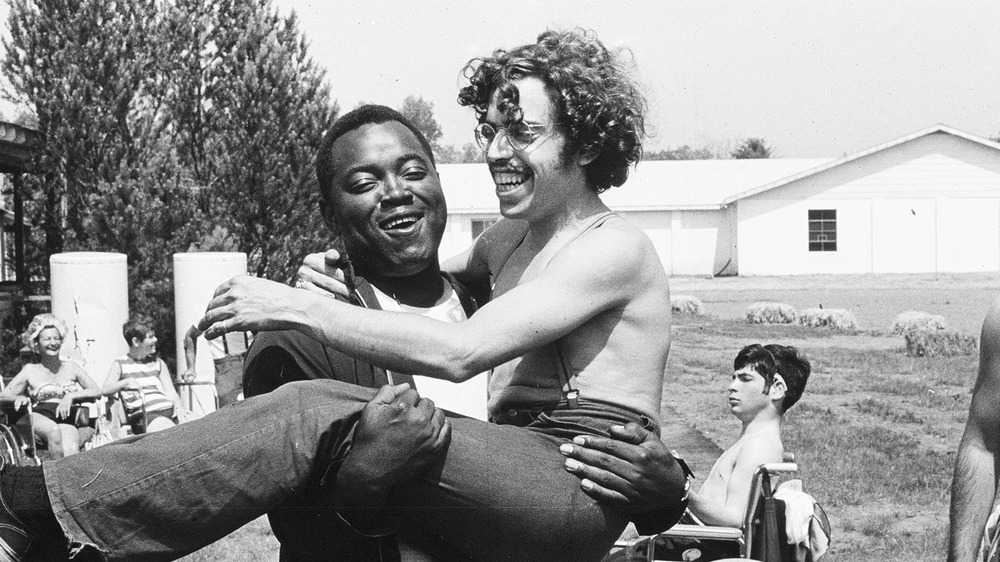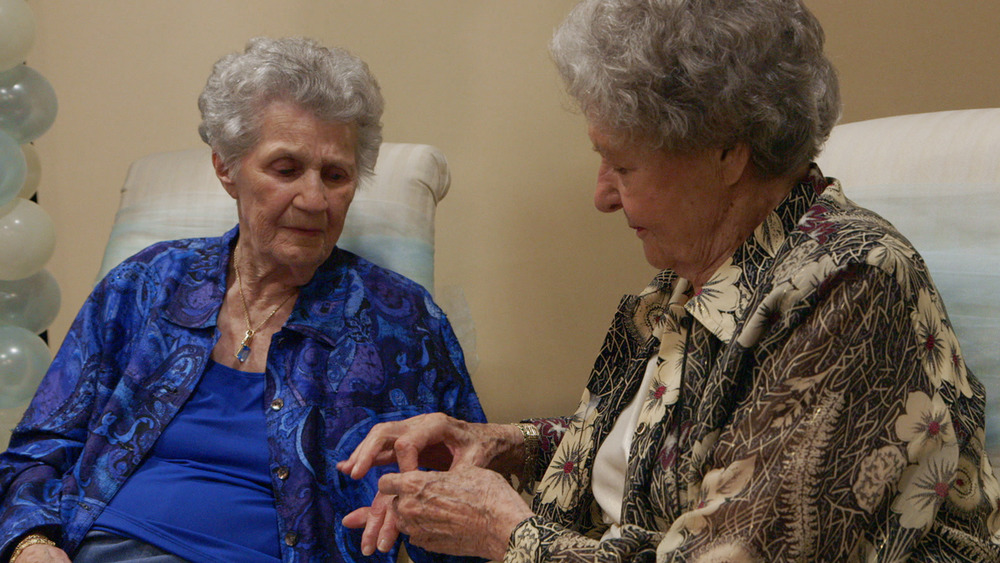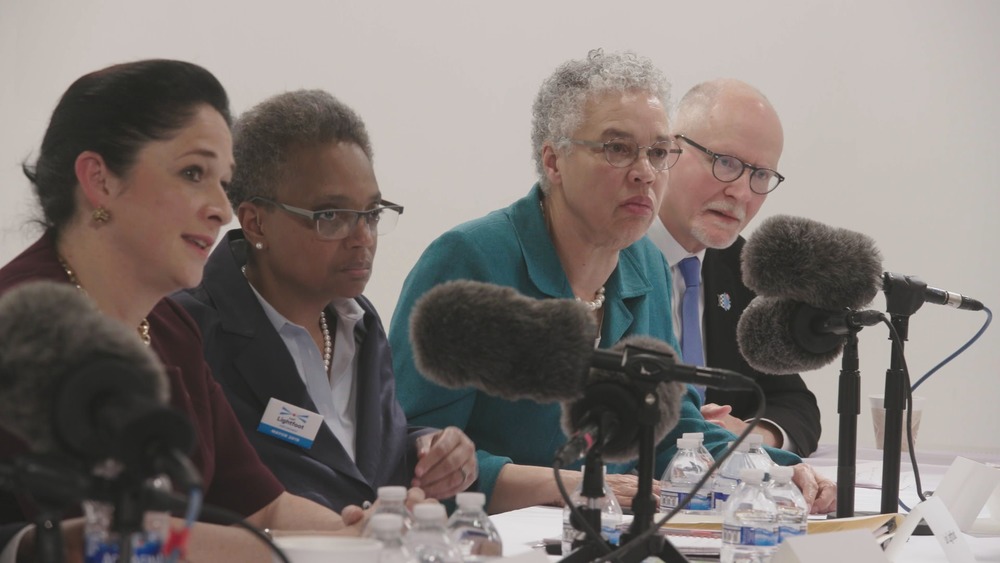The Best Documentaries Of 2020
Documentary film can be an important artistic medium for self-reflection — for exposing truths about the world around us, illuminating things we never knew about, and for showing us the darkest and most hopeful aspects of ourselves. Especially in 2020, a year when truth became stranger than fiction on a daily basis, it's no wonder that we got an exhaustive amount of documentary films that felt even more potent, and more keyed into the present moment of our exhausting reality.
From political unrest to family drama, from the dangers of the internet to the everyday fight for equality, the documentaries released in 2020 — and especially the ones we're focusing on here — all found meaningful, creatively fulfilling ways to shine a light on the world around us and point us towards a brighter tomorrow. If you're in the mood to see life through a whole new lens, you'll want to add each of these films to your queue. Here's a look at the best documentaries released in 2020.
Time is an artful, humane look at a corrupt justice system
How do you truly make up for lost time? That's what Fox Rich asks herself on a daily basis, raising her six kids by herself after her husband Rob is imprisoned for a bank robbery gone wrong and given a practical life sentence. Rich spends the film sharing her life story with us, all the while fighting to get her husband released early from his sentence and struggling to fight against a system where justice is the last thing on their mind.
Constructed from Rich's own home videos, mixed together with director Garrett Bradley's present-day coverage, this tremendously emotional piece of abolitionist poetry succeeds primarily because of its focus on the deep and personal love between Fox and her husband, their relationship forming the marvelous bedrock for a larger conversation about the corruption and immoralities built into the country's justice system. Time understands that humanity is all we have, and when we want to take a stand against the injustices of our world, it's the thing that holds us all together.
Boys State explores how the political landscape is shaping the minds of young men, and vice versa
The idea of a thousand teenage boys creating their own representative government might, rightfully, sound like an absolute nightmare, but it's also the basis for the hilarious and revelatory Boys State, a deep dive into the weeklong American Legion Boys State program held in Austin, Texas, where over the span of a few days, elections are held, bills are passed, and the political machine is thrown into the hands of a bunch of teenagers, all getting a sweet dose of the power, and madness, of democracy within the current electoral process,.
Directors Jesse Moss and Amanda McBaine have crafted a film that's utterly hilarious, genuinely terrifying, and more than revealing of the inner machinations of the minds of these young boys, whose tactics in trying to sway people's votes are both utterly childish and also reflective of the adults currently occupying our country's legislative bodies. The brilliance of Boys State is the dichotomy at play in the program: there are boys here who truly want to do good in the world, and then there are boys who just really want to be good politicians. What Moss and McBaine understand more than anything is that those two things are not always one and the same.
Dick Johnson Is Dead takes a humorous approach to the loss of a loved one
What does it mean to lose a loved one? How can you capture joy from someone's demise? Acclaimed filmmaker Kirsten Johnson beautifully floats between the lines of comedy and tragedy to answer these questions in Dick Johnson is Dead, a cinematic diary of her relationship with her father Richard Johnson, who we meet in the early stages of his dementia. Kirsten uses the tool she knows best — filmmaking — to chronicle imaginary, cinematic deaths that become more outlandish, more gruesome, and more hilarious, as time goes on.
Maybe it's Kirsten's desire to turn death, a moment of deep depressive isolation, into a shared, joyful experience. Maybe it's Kirsten's way of sharing these grand memorable moments with her father before he loses all memory. Whatever the answer, you're unlikely to find a more beautiful chronicling of a parent/child relationship in 2020 — not to mention a grand finale that will leave you speechless. Dick Johnson is dead, long live Dick Johnson.
Feels Good Man dilutes the hatred of the contemporary internet to a single meme
If you've been relatively internet-literate for the past five years or so, chances are you've come across Pepe the Frog, the delightful — or deadly, depending on who you ask — cartoon frog that inexplicably became a symbol for online hatred, trolling, and vitriol. That history comes to joyous and terrifying life in Feels Good Man, Arthur Jones' brilliantly structured look at the history of Matt Furie's amphibian creation, the out-of-control life it took online, and how hatred and cruelty became a driving force behind contemporary far-right political ideology.
Cartoonist Furie could never have imagined that a simple image of his slacker frog drawing uttering "feels good, man" would become a front-facing online avatar for smugness, superiority, and eventually, a dog whistle for white nationalism. But not only does Feels Good Man provide a palatable dissection of far-from-palatable ideologies, it's also a story of hope, reclamation, and how positivity and care for one another can ultimately conquer the darkest forces present in the world. Furie, and Pepe, argue that caring about stuff isn't just good, it's essential to us making the world a better place. That really does feel good, man.
David Byrne's American Utopia reminds us of the beauty of connection through live performance
In a year when going to see concerts, theater, or any kind of live entertainment in general became an often nonexistent option, in swooped David Byrne's American Utopia, a filmed version of his touring show-turned-Broadway extravaganza, to remind of us of the joy and community we'd been missing. Halfway between an out-and-out concert and a theatrical exploration of the ways that humanity tries and fails to connect with each other, Byrne's eclectic mix of Talking Heads hits ("Once in a Lifetime," "Burning Down the House") and new, equally enchanting, solo numbers ("Here," "Everybody's Coming to My House") is performed to perfection by Byrne and his merry shoeless band of movers and instrumentalists, all clad in identical grey suits roaming around the space performing Annie-B Parson's infectious choreography.
Captured on film by director Spike Lee (having a stellar cinematic 2020 between this and his latest fiction film Da 5 Bloods), American Utopia further leans into its already politically fueled nature, culminating in a performance of Janelle Monae's "Hell You Talmbout" interlaced with images of Black citizens who have been murdered by police in this country. As hard-hitting as it is joyful and merry, American Utopia reminds us that every day is a miracle, and we may all be on the road to nowhere, but we're on that road together.
Totally Under Control shows how the U.S. government's approach to COVID-19 was anything but
You might think an in-depth analysis of the U.S. government's response to the COVID-19 pandemic might be the last thing you'd want to watch this year, but under the direction of Alex Gibney, Ophelia Harutyunyan, and Suzanne Hillinger, Totally Under Control presents us with an up-close and personal look at a governmental trainwreck that's as informative as it is anger-inducing.
From overt misinformation campaigns to failed viral testing left unchecked by the federal government and the vitriolic politicization of the simple act of wearing a mask, Totally Under Control presents a comprehensive timeline of the spread of COVID-19 across the globe, and the complete mishandling of the pandemic in the hands of a government and a presidency more concerned with public image than public safety. With a brisk editing style, calm narration from co-director Gibney, and a slew of expert contributing panelists, Totally Under Control succeeds as both a look back at how we got to this moment, and perhaps even how we can avoid this crisis from happening again to future generations.
Disclosure explores a comprehensive and essential history of transgender performers in the entertainment industry
Often, positive media representation can be a huge part of shifting cultural perception away from bigotry and hatred toward marginalized communities, and even help society move towards legislation that promotes acceptance and tolerance. That's the hope, at least, outlined in director Sam Feder's Disclosure: Trans Lives on Screen, an in-depth look at the history of transgender performers in the entertainment industry (primarily in the worlds of television and film), starting off as a punchline for mainstream Hollywood, evolving to performing in demeaning, stereotypical roles, and ever so slightly moving to a place where trans artists are finally able to create their own stories in the media landscape.
Part history lesson, part hopeful beacon for the future of the industry, Disclosure tackles the nefarious culture war focused around the basic humanity of transgender individuals who just want to be accepted in society. With interviews from trans icons like Laverne Cox, Alexandra Billings, Lilly Wachowski, and many more, Disclosure is a wonderfully informative means of dispelling the everyday harassment faced by trans people everywhere, and the hope that the stories we tell onscreen can translate to better lives for all in the real world.
The Social Dilemma exposes the dark side of the world of social media
At a time when more and more people have been trapped inside glued to their phones, along came The Social Dilemma to knock a little bit of perspective into everyone's noggins. Directed by Jeff Orlowski, The Social Dilemma gathers an array of Silicon Valley executives and tech moguls ready to share why the Frankenstein's Monster of their own creation has wrought such havoc on the global online landscape.
With a mix of real-world interview footage and — admittedly super, super cheesy — fictional footage to complement the themes of the film, The Social Dilemma primarily goes for the offense in its criticism of social media, the spread misinformation, and the folly in looking to seek online validation. It's a film that argues that the world around us is even more vast and amazing than the one lurking in our phones.
Crip Camp beautifully chronicles the fight for disability rights in America
In the fight for representation in this country, no fight is truly intersectional without including the rights of the differently abled, a cause marvelously chronicled in Crip Camp: A Disability Revolution. Directors Nicole Newnham and James Lebrecht begin their story in 1971, with group of friends who met at Camp Jened, a camp specifically designed for kids with disabilities, where they are able to forge friendships and imagine a world where their physical and mental disabilities aren't judged or looked down upon, and they can truly thrive and be themselves.
After spending several summers together, a few of these campers grew up to let their passions for disabled rights fuel themselves over the years, tired of living in a world where architecture and culture are major exclusionary forces for those with disabilities. Marches, protests, and demonstrations followed, even gaining the support and aid of the Black Panther Party, similarly engaged in the fight for solidarity and equality. These efforts would prove triumphant, leading to the passing of the Americans with Disabilities Act in 1990, ultimately proving the power of Crip Camp, where equality for all truly means equality for all.
A Secret Love explores a loving relationship hidden from the public for far too long
In the 1940s, Terry Donahue and Pat Henschel started a romantic relationship that would last for decades. But they wouldn't make this relationship public until more than 60 years later, and the love they kept so secret for so many years is the pin that holds together A Secret Love, a charming documentary that's guaranteed to pull on your heartstrings throughout its runtime.
A Secret Love definitely tries to cover a wide number of topics in its chronology (Terry's past as a baseball player, the hectic nature of Terry and Pat trying to move across the country, Terry's family's initial dislike of Pat) that aren't always able to find a coherent through line, but the tenderness and love that's clearly on display is reason enough to check out this all-too romantic depiction of a queer love story for the ages.
City So Real looks at the beauty and chaos of Chicago mayoral politics
Premiering at Sundance in early 2020 and hitting National Geographic and Hulu in late October, Steve James' multi-part docuseries City So Real is a film indebted to the city of Chicago as it travels from neighborhood to neighborhood, chronicling the tumultuous, overstuffed, and controversy-laden 2019 mayoral election. After Rahm Emanuel announced that he wasn't seeking re-election, a panoply of mayoral candidates threw themselves into the race, and James' incisive humanist lens gives us a deep look into the intricacies and inanities of the political process.
Part of James' expert approach is making sure that this is a story told by Chicagoans and Chicagoans only, interviewing residents from all across the city, using local news broadcasts to provide exposition, and playing fly on the wall for conversations between those who know the city best. Between January and October of 2020, James even added another episode to the series, covering the city's response to the COVID-19 pandemic and detailing how the city has been affected by the disease. By sticking to the city he's covering, James' City So Real becomes an absolute must-see series that tackles the beauty and ugliness that lies within the political machine, and a city that refuses to let anything get in its way.
